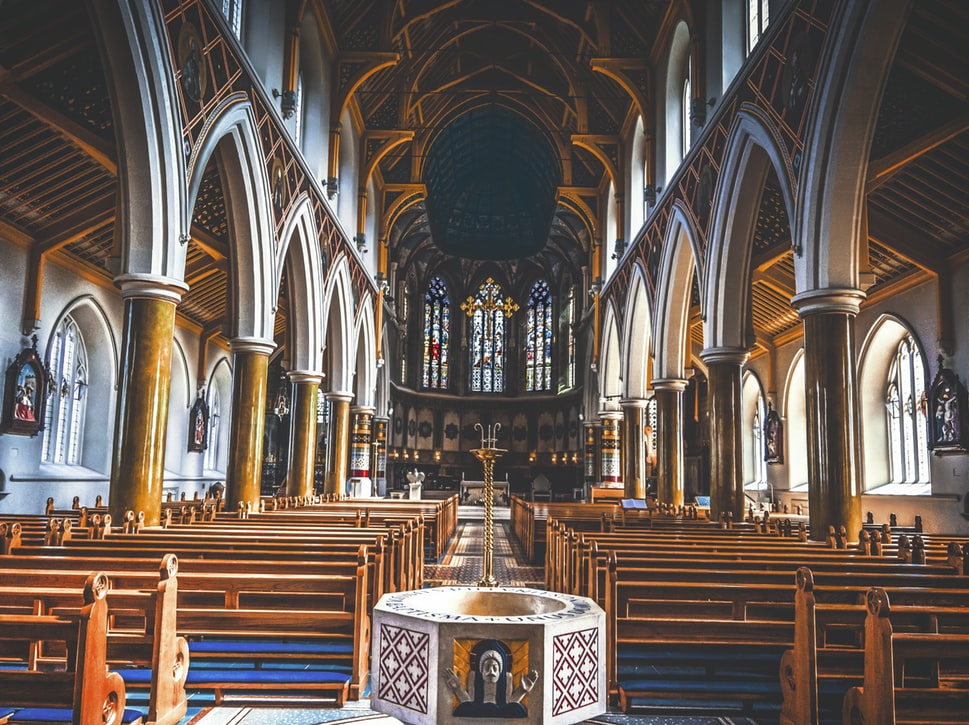Religion does not lead to violence. It is only certain followers of religious leaders that foment violence. The teachers of every major religion have preached and practiced peace. It is the followers who distort those teachings for their own ends and become violent.
Still, there is no doubt that much of the violence in our history originated in religious fanaticism leading to religious wars and violent crimes. Other roots of violence are nationalism and racism. What history demonstrates is that many acts of violence, including wars, are justified by racism, nationalism, and religion.
 All of these “isms” are based on one belief. My race, country, religion is better than yours. In fact, mine is good and right and holy and yours is bad, wrong, and evil. It is this human ability to polarize, to turn you into the opposite of me, that allows us to commit violence against others.
All of these “isms” are based on one belief. My race, country, religion is better than yours. In fact, mine is good and right and holy and yours is bad, wrong, and evil. It is this human ability to polarize, to turn you into the opposite of me, that allows us to commit violence against others.
Ironically, it is those who claim to have the greatest faith, those who are most certain of their beliefs, of the rightness of their path, who are the most dangerous. There is a Zen saying: “Where there is great doubt, there will be great awakening; small doubt, small awakening, no doubt, no awakening.”
This might sound counterintuitive to many, as it did to me when I first read it. But when you are certain of the rightness of your religious beliefs, you also become certain of the error of all other beliefs. It becomes your duty to help others see the light, even if you must do it through violence.
Religious fanatics have narrowed their vision to such an extent that they cannot see their own obvious heresy and hypocrisy.
A recent example of this, and there are many, is religious leader Pat Robertson calling for the assassination of Venezuelan president Hugo Chavez. Many religious leaders across the country pointed out that this was an un-Christian thing to say. 
In truth, it was certainly un-Christian but, in light of the teachings and life of Jesus, it was actually anti-Christian. Christian religious fanatics like Robertson love to talk about the dreaded anti-Christ and point the finger at anyone who dares to disagree with them. But they are unable to see their own anti-Christian words and behaviors.
Religious fanatics
Extreme hypocrisy goes hand in hand with an extreme lack of awareness. “No doubt, no awakening.” These people are asleep. Their self-awareness is close to zero. Their minds are like a hard drive that needs to be de-fragmented. Their minds are fragmented into separate little compartments to such an extent that they are capable of holding completely opposite positions without noticing their hypocrisy.
The sad truth is those religious fanatics are very dangerous. Many people have died, been tortured, been imprisoned, and been enslaved in the name of one religion or another. A religious fanatic in a position of power represents the greatest danger of all.
In our own time, we can look at Adolph Hitler, who believed that God had chosen him to lead the German people and to lead them into war. Closer to home, George Bush believes the same thing. Our newest vice-presidential candidate, Sarah Palin, who is a religious fanatic, also believes that God wants us to continue to kill the non-white, non-Christian, non-American people in Iraq.
Beware of people who know they are right. Beware of people who do not ask questions, who do not have doubts, who do not seek different opinions. Fanaticism, whether in the name of religion, race, or nationality is a kind of psychosis and it is a very dangerous illness.






